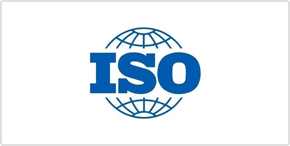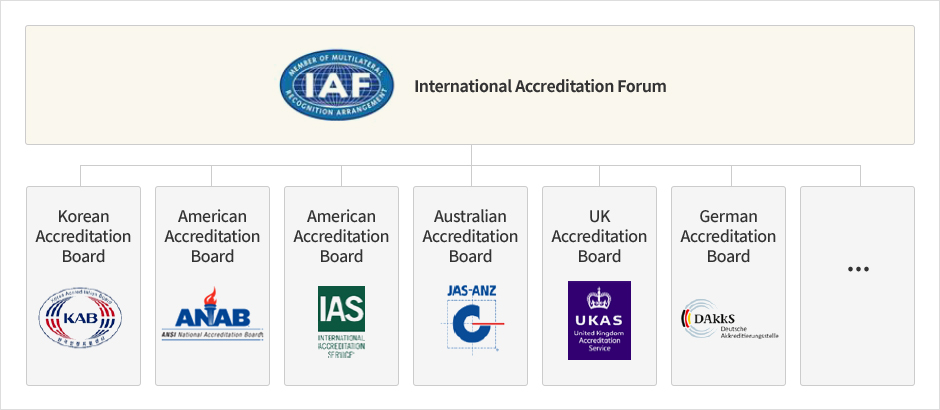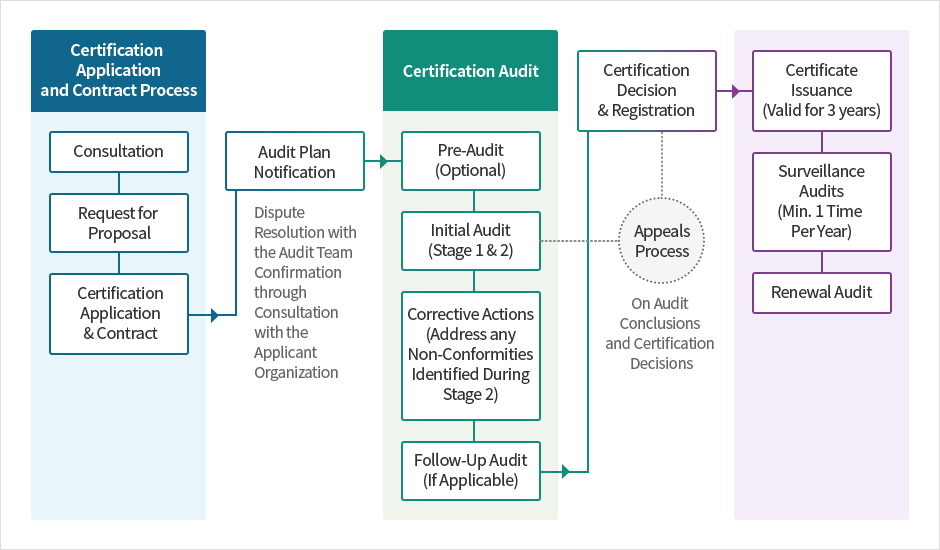본문
What is ISO Certification?

ISO certification is an internationally recognized standard for management systems set by the International Organization for Standardization (ISO). It ensures that a company's management systems meet the required standards and are effectively implemented and maintained.
- Benefits of Certification
-
- Enhanced corporate image, leading to increased sales and smoother trade transactions.
- Boosted credibility both internally and externally, making it easier to attract new customers.
- Provides a foundation for quality improvement and technological innovation.
- Offers a competitive edge in business dealings and bidding processes.
- Clearly defines responsibilities and authorities within the company.
- Establishes a structured internal training program.
- Helps identify and streamline redundant or missing tasks.
- Allows partial exemption from duplicate audits requested by individual clients.
- Ensures optimal preparation for the Product Liability (PL) system.
- ISO standards serve as the basis for factory inspections in product certification processes.
- ISO (International Organization for Standardization) Overview
-
Name International Organization for Standardization Purpose To simplify international trade of products and services and to enhance cooperation in scientific, technical, and economic fields. Established February 23, 1947 Status Non-Governmental Organization (NGO) Headquarters Geneva, Switzerland Members 164 Countries
System Certification Services (Accredited by KAB)
-
System Categories Standard Name ISO 9001 ┃ Quality Management Systems Quality Management Systems ISO 14001┃ Environmental Management Systems Environmental Management Systems ISO 45001┃ Occupational Health and Safety Management Systems Occupational Health and Safety Management Systems ISO 37001┃ Anti-Bribery Management Systems Anti-Bribery Management Systems ISO 37301┃ Compliance Management Systems Compliance Management Systems ISO 50001┃ Energy Management Systems Energy Management Systems ISO 27001┃ Information Security, Cyber Security and Privacy Protection Information Security Management Systems ISO 22000 ┃Food Safety Management Systems Food Safety Management Systems AS 9100 ┃Aerospace Quality Management Systems Aerospace Quality Management Systems ISO 22301 ┃ Security and Resilience — Business Continuity Management Systems Business Continuity Management Systems
- ISO 9001 ┃ Quality Management System
-
-
Overview
- ISO 9001 is a standard developed by the International Organization for Standardization (ISO) for Quality Management Systems (QMS).
- It helps organizations implement a quality management system that meets customer and legal requirements, and supports ongoing improvement.
-
Benefits
- Boosts customer confidence, enhances operational efficiency, and improves market competitiveness.
-
Implementation Approach
- Ensure active management involvement and leadership, conduct regular internal audits and system improvements, and provide comprehensive training and education programs.
-
Overview
- ISO 14001 ┃ Environmental Management System
-
-
Overview
- ISO 14001 is a standard for Environmental Management Systems (EMS) developed by the International Organization for Standardization (ISO).
- It helps organizations effectively manage environmental risks and enhance their environmental performance.
-
Benefits
- Ensures compliance with environmental regulations, improves corporate sustainability and eco-friendly reputation, reduces costs, and enhances resource efficiency.
-
Implementation Approach
- Evaluate environmental impacts and set objectives, develop and execute an environmental management plan, and continuously monitor and enhance performance.
-
Overview
- ISO 45001 ┃ Occupational Health and Safety Management System
-
-
Overview
- ISO 45001 is a standard for Occupational Health and Safety Management Systems (OHSMS).
- It establishes a systematic approach to safeguarding employee health and safety in the workplace.
-
Benefits
- Reduces workplace accidents and enhances employee safety, ensures compliance with legal requirements, and improves corporate reputation and social responsibility.
-
Implementation Approach
- Perform risk assessments and develop management plans, deliver comprehensive employee training, cultivate a safety-focused culture, and establish effective procedures for handling accidents and emergencies.
-
Overview
- ISO 37001 ┃ Anti-Bribery Management System
-
-
Overview
- ISO 37001 is an international standard for Anti-Bribery Management Systems (ABMS).
- It provides a framework for organizations to prevent, detect, and address bribery and corruption.
-
Benefits
- Reduces the risk of bribery, ensures compliance with legal and regulatory requirements, and promotes ethical business practices and transparency
-
Implementation Approach
- Establish anti-bribery policies and procedures, perform risk assessments and ongoing monitoring, and enhance training programs and internal controls.
-
Overview
- ISO 37301 ┃ Compliance Management System
-
-
Overview
- ISO 37301 is the standard for Compliance Management Systems (CMS).
- It provides organizations with a framework to ensure adherence to legal and ethical requirements.
-
Benefits
- Reduces legal risks, enhances organizational credibility and ethical standing, and strengthens internal controls and management processes.
-
Implementation Approach
- Perform compliance risk assessments and develop management plans, conduct training and awareness programs, and engage in continuous monitoring and improvement activities.
-
Overview
- ISO 50001 ┃ Energy Management System
-
-
Overview
- ISO 50001 is the standard for Energy Management Systems (EnMS).
- It supports organizations in managing energy use efficiently and improving energy performance.
-
Benefits
- Reduces energy costs, promotes environmental protection, lowers carbon emissions, and ensures compliance with legal standards.
-
Implementation Approach
- Analyze energy consumption and set efficiency targets, develop and execute an energy management plan, and continuously monitor performance and make improvements.
-
Overview
- ISO 27001 ┃ Information Security, Cyber Security and Privacy Protection
-
-
Overview
- ISO 27001 sets the standard for Information Security Management Systems (ISMS).
- It supports organizations in safeguarding their information assets and managing security risks effectively.
-
Benefits
- Reduces the risk of information breaches and security incidents, ensures compliance with legal and regulatory requirements, and strengthens customer trust and organizational reputation.
-
Implementation Approach
- Establish information security policies, assess and manage risks, implement robust security controls, conduct regular internal audits, and focus on continuous improvement.
-
Overview
- ISO 22000 ┃Food Safety Management System
-
-
Overview
- ISO 22000 is the standard for Food Safety Management Systems (FSMS).
- It combines the principles of ISO 9001 with all seven principles and twelve procedures of HACCP.
-
Benefits
- Enhances food safety management and preventive measures, optimizes hygiene management, ensures effective communication across the supply chain, improves employee accountability, and strengthens the company’s reputation.
-
Implementation Approach
- Prevent and manage food safety hazards proactively, ensure the effectiveness of food safety measures, and continuously improve system performance.
-
Overview
- AS 9100 ┃ Aerospace Quality Management System
-
-
Overview
- KS Q 9100 / AS 9100 is a quality management system standard specifically designed for the aerospace industry, building on the foundation of ISO 9001. It includes additional requirements tailored for aerospace, space, and defense sectors.
-
Benefits
- Promotes continuous improvement of aerospace quality management processes, ensures compliance with customer and regulatory requirements, and enhances customer satisfaction through effective system implementation.
-
Implementation Approach
- Perform regular evaluations and reviews, and engage in continuous monitoring and improvement activities.
-
Overview
- ISO 22301 ┃ Security and Resilience— Business Continuity Management System
-
-
Overview
- ISO 22301 is a standard for Business Continuity Management Systems (BCMS) designed to ensure organizational resilience and security.
-
Benefits
- Internally, it establishes and fosters a robust crisis management culture. Externally, it demonstrates strong disaster and crisis management capabilities, enhancing overall service competitiveness.
-
Implementation Approach
- Identify critical business functions based on their importance and time sensitivity. Allocate the necessary resources and set recovery time objectives (RTO) for these functions. Assess the risks affecting these functions and develop comprehensive business continuity strategies and procedures.
-
Overview

 KOREAN
KOREAN

